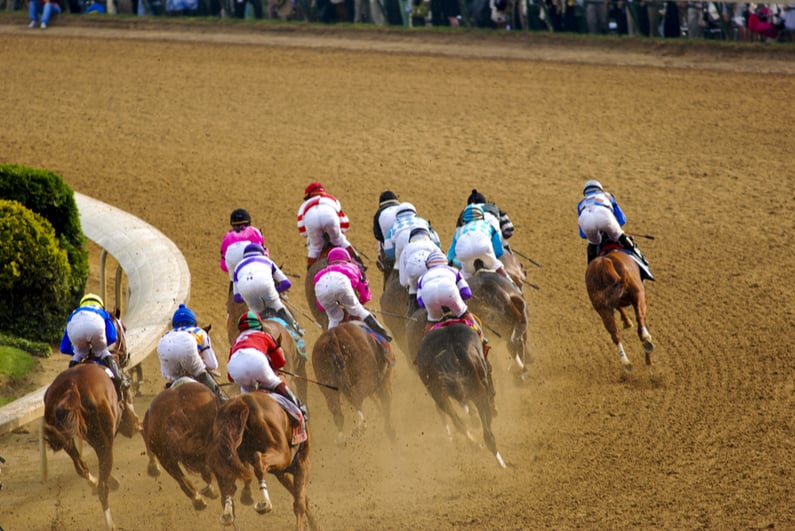Update: Kentucky legislators on February 4 advanced a measure intended to prevent the ceasing of historical racing machine operations from racetracks in the state. The Senate Licensing and Occupations Committee green-lighted the bill, which will head to the Senate for approval before reaching the House.
Awaiting some clarity
Two racecourses in Kentucky have closed down their historical racing operations after the state’s Supreme Court refused to rehear a case regarding the legality of the games.
The Keeneland and Red Mile racecourses announced they had shut down their historical racing games Sunday. Websites for both racecourses featured a statement regarding the closures. It said they made the “difficult decision” to close until there is some “clarity surrounding the situation.” Neither racecourse announced a potential reopening date.
Red Mile also announced the temporary suspension on its Twitter page:
The closures relate back to a Supreme Court case in September of last year. The court deemed some of the slot-like games, which allow bettors to wager on historical horse races, illegal under current state law. The court denied the Kentucky Horse Racing Commission’s request to rehear the case.
Background of the case
Current Kentucky law allows pari-mutuel wagering on horse racing as one of the state’s only legal forms of gambling. This is in addition to charitable games such as the lottery. Unlike traditional sports wagering, pari-mutuel wagering allows bettors to play against each other, rather than the house. This creates a pool of winnable funds with odds dictated by the number of bets placed.
the state’s Supreme Court deemed at least some of the games illegal in a unanimous vote
In 2018, the Franklin County Circuit Court approved historical racing games under the regulation of the Kentucky Horse Racing Commission. Last September, however, the state’s Supreme Court deemed at least some of the games illegal in a unanimous vote. Unlike pari-mutuel betting, the court concluded that the games do not create a wagering pool. The decision reversed the Franklin County Court’s 2018 approval.
As part of its ruling, the Supreme Court published an opinion written by Justice Laurance B. VanMeter providing reasons for the decision. VanMeter said the Franklin County Court “misapplied the applicable regulation as a matter of law” in 2018. After the Supreme Court declined to rehear the case, the issue will now revert back to the Franklin County court.
Support and opposition
The Supreme Court’s ruling follows a campaign led by the Family Foundation of Kentucky. The Kentucky-based anti-gambling group has consistently argued against the legality of historical racing games.
In a statement released shortly after the Supreme Court’s ruling, the Family Foundation expressed its gratitude for the decision. Martin Cothran, spokesman for the group, said the historical racing games “masked a form of gambling that ignored the clear definition of pari-mutuel wagering.” He thanked the court for “seeing through the smoke screen.”
In contrast, Kentucky Governor Andy Beshear has demonstrated his support for the state’s historical racing operations. The governor previously said the loss of historical racing would be “devastating” to Kentucky’s state budget and horse racing industry. Last December, Beshear urged the state’s lawmakers to be “bold,” and find a way for the slot-like machines to continue operating despite the Supreme Court’s decision.
